Description
ABSTRACT
An Examination of the Criminal Liabilities of Doctors in the Nigerian Healthcare System
Dr Moses Ediru* and Ogaga Great Ediru**
There has been a dearth of criminal proceedings instituted against medical doctors in the discharge of their duties where their acts or omissions fall short of the required standard set by the penal laws of the country or amount to offences. This may be due to the populace’s ignorance or the absurdity in the notion that doctors cannot be criminally liable while performing their duties or engaging in other unethical activities. This work examines the criminal liabilities of doctors in the Nigerian healthcare system to inform the populace on the accountability of doctors for criminal acts or omissions done while discharging their duties and available defences to such criminal acts or omissions. This work adopts the doctrinal method of research, which involves using primary and secondary sources of law. The work finds that sections 228 and 230 of the Criminal Code are ambiguous and devoid of meaning. The work recommends the amendment of sections 228 and 230 of the Criminal Code to give meaning and clarity to the definition of offences in the sections.
Keywords: Criminal negligence, Murder, Manslaughter, Criminal abortion, Criminal Code, Medical malpractice.
INTRODUCTION
A victim of medical malpractice has several options for redress against an erring doctor or medical practice institution. He or his personal representatives could pursue civil claims against the medical practitioner in tort or file a complaint with the Medical and Dental Council of Nigeria. The patient or his representative could also report to the police, who would conduct a criminal investigation. Where the investigation reveals the commission of a crime, the state can institute criminal charges against the alleged offender. Like any other citizen in Nigeria, a medical doctor is subject to criminal prosecution if he does or fails to do an act either in the course of his duty or otherwise, the act or omission amounting to a crime.1
The act or omission of the doctor must amount to a crime, otherwise, he will not be held criminally liable. The Constitution of the Federal Republic of Nigeria (CFRN), as amended, provides that ‘Subject as otherwise provided by this constitution, a person shall not be convicted of a criminal offence unless that offence is defined and the penalty, therefore, is prescribed in a written law’.2 The written law refers to an Act of the National Assembly or a law of a state or any subsidiary legislation or instrument under the provisions of a law. 3 The laws regulating the criminal liabilities of medical practitioners are the Criminal Code,4 which operates in the southern states of Nigeria, the Penal Code5 for the Northern states of Nigeria and the National Health Act.6 A doctor may be liable for offences ranging from murder, manslaughter to misdemeanours.7
* B. Pharm (Hons), LL.B (Hons) LL.M, PhD, BL. Formerly of Faculty of Law, Benue State University, Nigeria. Tel: 08036085014, Email: mose******@***oo.com.
** LL.B (Hons) LL.M, BL. M. E. Ediru & Co, Adjuya Chambers; Tel: 07066006974, 09052304536. Email: og********@***il.com.
1. YO Alli, ‘Medicine and the Law: The Interface’ (2004) 22 The Advocate 105.
2. The 1999 Constitution, s 36(12).
3. The 1999 Constitution, s 36(12).
4. Cap C38 LFN 2004.
5. Cap P3 LFN 2004.
6. No 8 of 2014.
77 7. A crime that is not very serious; lesser than a felony.

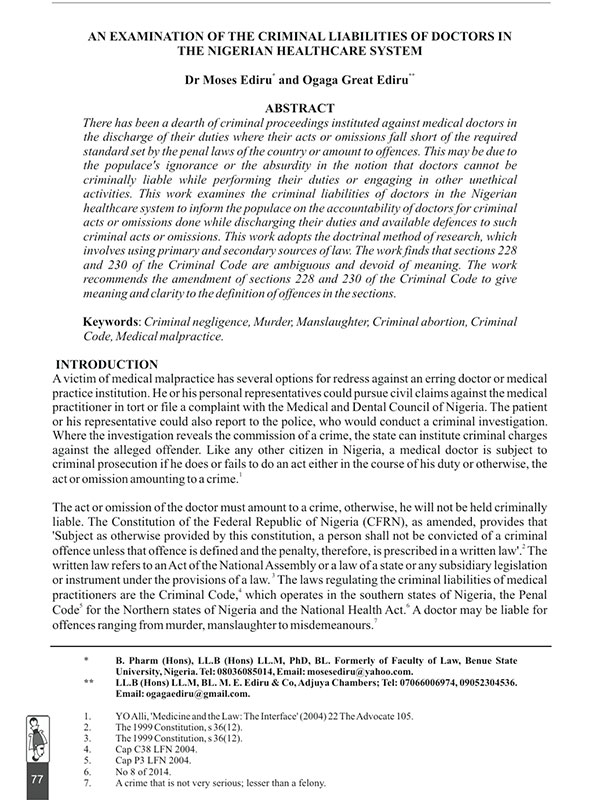
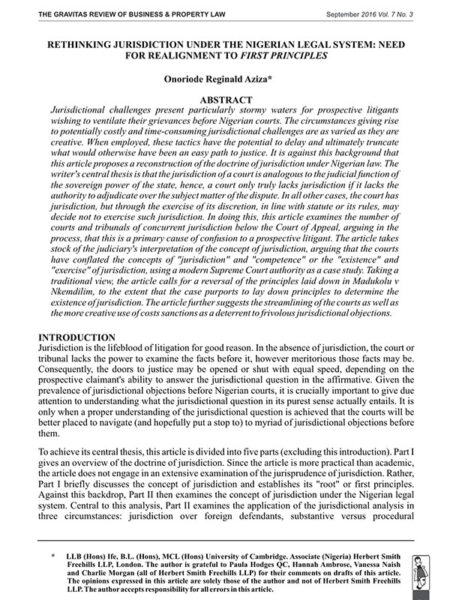
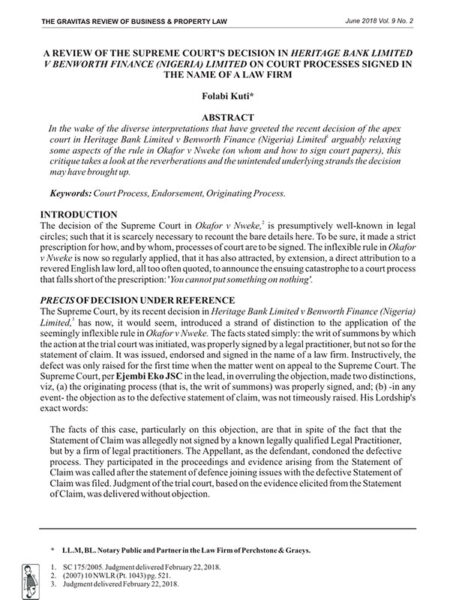
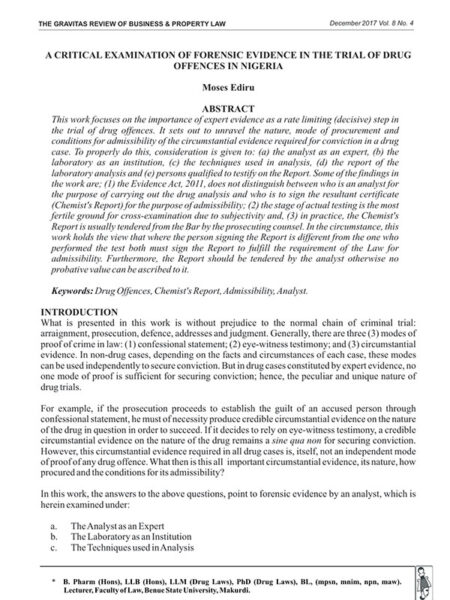
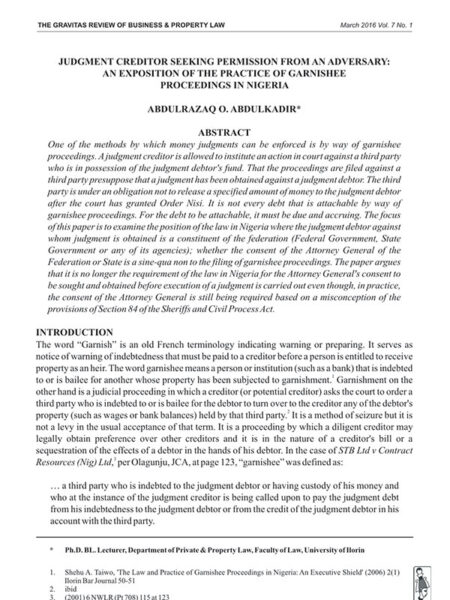


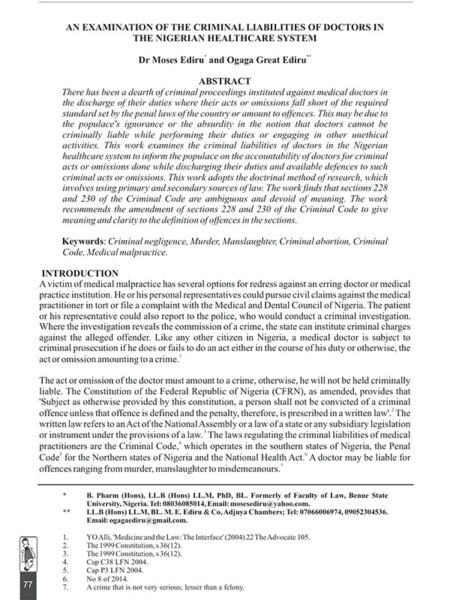
Reviews
There are no reviews yet.